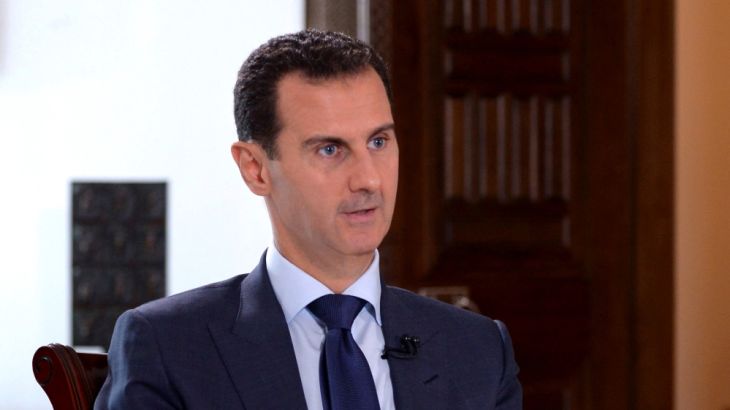Aleppo hospital raid: Ex-Assad classmate speaks out
Zaher Sahloul, who attended medical school with the now-Syrian president, accuses his ex-classmate of war crimes.

Moments after the news of the aerial bombardment of rebel-held Aleppo’s largest hospital got to him, Dr Zaher Sahloul reached for his phone.
“I talked with one of the nurses,” Sahloul tells Al Jazeera from Atlanta, Georgia. “He was screaming for help, he said ‘please do something to stop the bombing’.”
Saturday’s attack on the facility, known as M10, was the second in just three days and the eighth over the past month, according to activists. Before the latest bombardment, carried out by either Syrian government or Russian warplanes, only half of the hospital was operational.
|
|
Now, it is completely out of service.
“The Syrian regime used two barrel bombs, incendiary bombs and cluster bombs – as if they are attacking a bunker or a large military installation,” says Sahloul, a member of the Syrian American Medical Society (SAMS), which supports the facility.
The Syrian American pulmonary specialist, who back in the 1980s was a medical school classmate of now-Syrian President Bashar al-Assad, returned to Aleppo in late June where he also spent time working at M10.
“It was a terribly disastrous situation when I was there; there was a shortage of medication, doctors were working under very terrible conditions because hospitals had been attacked,” he says.
READ MORE: ‘My classmate is a war criminal’
“Right now, the situation is even worse,” Sahloul adds, describing the latest bombardment as “disastrous for the city of Aleppo”.
“This hospital usually does about 4,000 life-saving surgeries every year, it’s the only trauma centre in the city,” he says. “To be destroyed, as it happened today, is really a tragedy.”
University classmates
According to SAMS, there are only six hospitals now remaining in the besieged city that has been pounded by massive aerial bombardment and artillery attacks since a US-Russia implemented ceasefire collapsed last week.
At least 750 medical personnel have died in Syria since the beginning of the conflict more than five years ago, according to Physicians for Human Rights. The group said in August it had documented 373 attacks on 265 medical facilities.
|
|
“By destroying hospitals – often the only hope for survival in a war zone – Assad is ensuring his own citizens will perish,” Widney Brown, the group’s director of programmes, said at the time.
Inevitably, Assad’s name is also quickly mentioned by Sahloul.
From 1982 to 1988, the two were classmates at the University of Damascus. And even though they were not close, they would see each other regularly at class.
“Nothing special was about him when he was in medical school. He wasn’t brutal, and he was not known to be arrogant or ruthless,” says Sahloul.
“But what is happening right now is that you have a physician who … [took] the Hippocratic oath to protect patients … and now he is overseeing the killing of doctors and nurses and patients and the destruction of hospitals,” he adds.
“Regardless of whether these patients are his friends or enemies, this is our oath as physicians.”
‘War crimes’
Following Wednesday’s deadly air strikes on M10 and the second-largest hospital operating in the area, United Nations chief Ban Ki-moon warned that attacks on medical facilities were war crimes.
Speaking at the United Nations, Ban said: “This is a war against Syria’s health workers. Deliberate attacks on hospitals are war crimes. Denying people access to essential health care violates international humanitarian law.
|
|
“Even a slaughterhouse is more humane.”
Citing Physicians for Human Rights, Ban said 95 percent of medical workers in Aleppo before the war have been killed, detained, or fled the fighting.
“Every hospital that is attacked, and every doctor that is being killed is a war crime,” says Sahloul.
“It’s really ironic that you have a physician, or supposed to be a physician, who is overseeing this destruction.
“But I think what’s more ironic is that the international community is letting him doing that and letting the Russians doing that with impunity,” he adds.
“This is a new normal that is created in this conflict that the international community is tolerating and besides the words and the description of what’s happening we are not seeing action to stop this genocide.”
